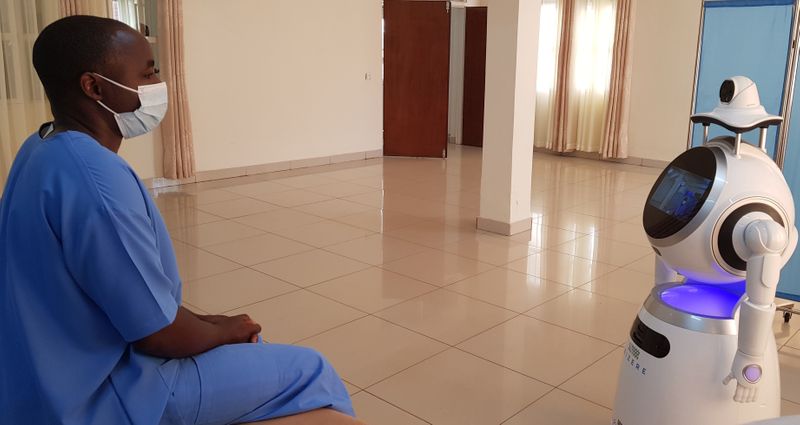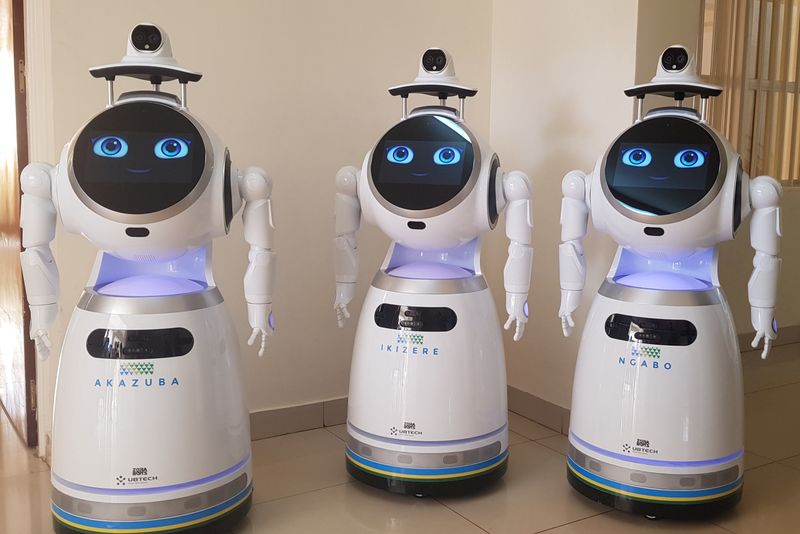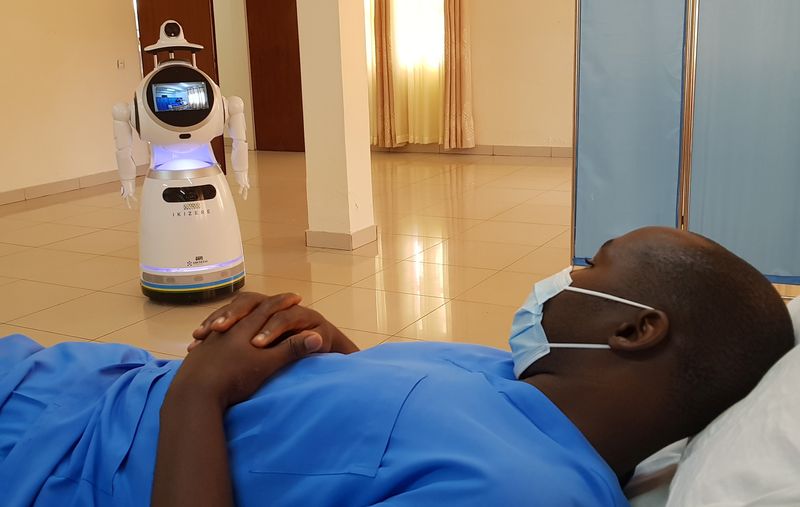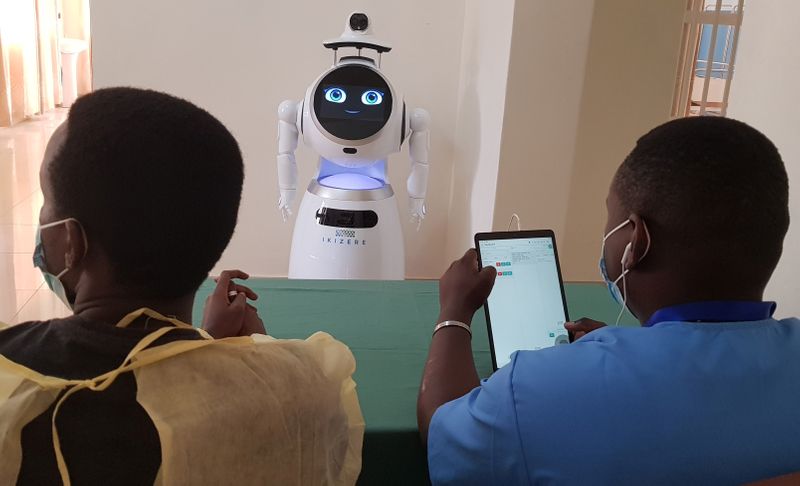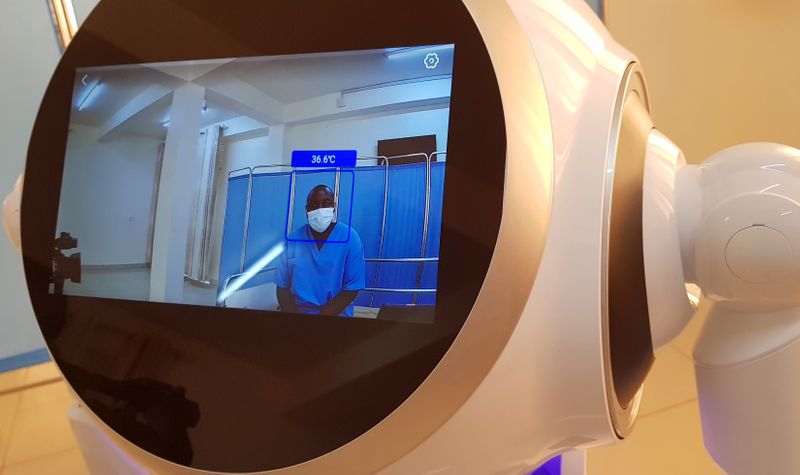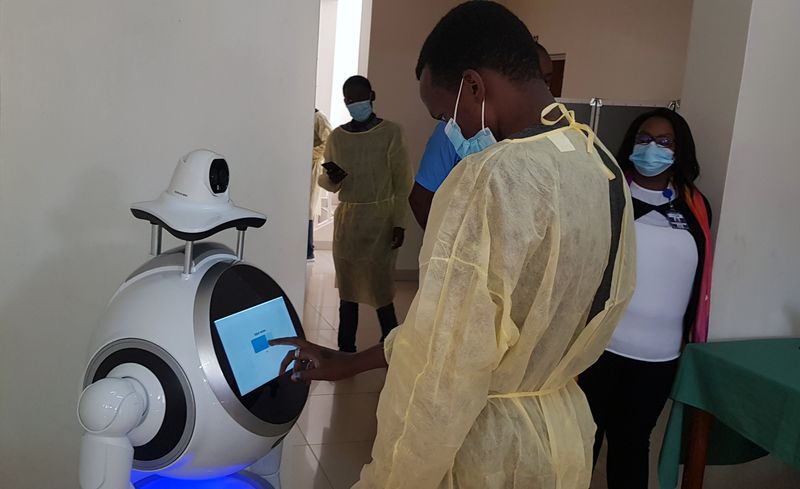KIGALI (Reuters) – At the Kanyinya COVID-19 treatment facility a short distance from Rwanda’s capital Kigali, Akazuba, Ikizere and Ngabo report for duty, but these are no ordinary health care workers.
In a bid to minimize contact between patients infected with the coronavirus and doctors and nurses, the country has deployed the three robots to carry out simple tasks like taking temperatures and monitoring patients.
The sleek white robots, with big bright blue eyes and a rather human appearance, were donated by the United Nations Development Programme (UNDP) and are helping frontline workers tackle the coronavirus crisis in the East African nation which so far has 355 confirmed cases of the COVID-19 disease.
“The three robots that we have are part of the treating team,” said David Turatsinze, a doctor at the 75-bed facility, which housed 65 patients when the Reuters team visited.
By relaying messages to doctors and helping the team assess the effectiveness of their clinical decisions, the robots cut the number of bedside visits that doctors have to make.
Francine Umutesi, a bio-medical engineer who works as a health technology operations specialist at the ministry of health, said the robots were a first for Africa and had the potential to offer even more support to medical teams.
“It doesn’t remove the tasks the doctors are supposed to do, it’s just complementing their efforts,” she said.
Rwanda already uses drones to deliver blood and enforce restrictions designed to slow the spread of COVID-19. There are two more robots at the country’s other COVID-19 treatment center, Nyamata, in south east Kigali.
Officials said the robots will be programmed to carry out additional tasks.
“In the future if they are programmed to take even blood pressure and the (blood) sugar, that definitely would be so helpful,” said Turatsinze.
(Writing by Duncan Miriri; Editing by Kirsten Donovan)

